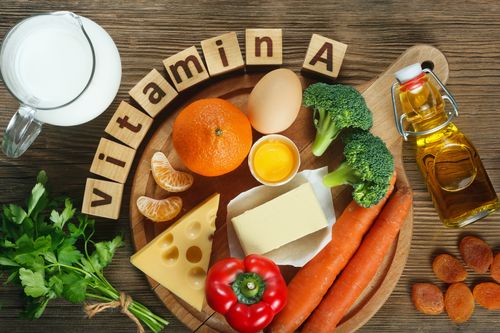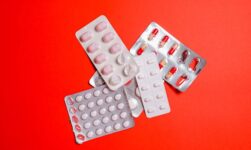
If you don’t need vitamins and minerals, what good are they?
Who should pay extra courtesy to their intake of precise vitamins, minerals, and fatty acids, as well as who should avoid receipt too much of them, is listed below. Because large doses of some vitamins or minerals might be dangerous, you should always see a doctor or a professional nutritionist before taking them.
Essential Fatty Acids are Omega-3 Fatty Acids
When you’re four weeks old, you should start taking cod liver oil or omega-3 capsules if you don’t eat fatty fish 2-3 times a week. Other marine oils, such as seal or krill oil, can be used in place of cod liver oil, though vitamin D fortification is rare.
Previously, vegans and vegetarians had to choose between omega-3 supplements based on alpha-linolenic acid and long-chain fatty acids like DHA and EPA found in cod liver oil. This has altered in recent years because to omega-3 fatty acid supplements made from marine microalgae, such as Nycoplus Vegetable Omega-3.
Because omega-3 fatty acids can thin the blood, people who take the blood thinner Marevan (which contains warfarin) should see their doctor before starting or stopping high doses of fish oil.
Vitamin D is a Necessary Mineral for Human Health
When our skin is exposed to sunshine, our bodies produce Vitamin D. We also get it from our food, though the vitamin D requirements are difficult to satisfy on a healthy diet alone. Vitamin D supplements, whether in the form of cod liver oil, pure vitamin D, or a multivitamin/mineral supplement, are recommended in the winter when there is less sunlight and sunbathing.
For certain people, vitamin D insufficiency is a possibility. When you use sunscreen and have a lot of orpiment in your skin, the amount of vitamin D produced by sun exposure is lowered. Vitamin D deficiency is more likely in those with dark skin who use a high UV factor. They may wish to consider taking a supplement. Furthermore, aged people’s skin produces less vitamin D as a result of sun exposure. As a result, doctors are advising more persons over 75 to take a double dose of vitamin D to avoid osteoporosis, falls, and fractures.
Be cautious if you’re taking a lot of vitamin A and D supplements. High doses can be dangerous, and average intake should be kept to a bare minimum over time.
Pregnant women should not consume more than 800 mcg (micrograms) of vitamin A per day.
Folate (also Known as Folic Acid) is a Vitamin that can be found in a Variety of Foods
Supplementing with folic acid (vitamin B9) reduces the incidence of neural tube abnormalities by half (spinal cord hernia). Autism, cleft lip, delayed language development, and early placental abruption have all been linked to it. To get these effects, start taking folic acid supplements one month prior to conception and continue for the first three months.
Because it is difficult to predict when a woman will become pregnant in practice, it is recommended that all women of reproductive potential who are expecting to become pregnant take a daily folic acid supplement of 400 micrograms. A typical multivitamin/mineral supplement has less folic acid and does not provide the same benefits.
Mothers who have epilepsy or who have had/have given birth to children with neural tube defects are advised to take a tenfold greater amount, i.e. 4 mg folic acid daily for the same time period.
Vitamin B12 (Cobalamin)
Vegans (vegetarians who do not consume any animal products) do not consume any vitamin sources. As a result, someone who only eats plant foods needs to supplement with vitamin B12. Vitamin B12 deficiency can affect the elderly and people who have had gastric bypass surgery; however this is due to a loss of intestinal absorption. As a result, the vitamin must be given as an injection by a doctor.
Vitamin C is an Extremely Effective Antioxidant
You may easily meet your vitamin C requirements if you eat fruits and veggies. Vitamin C is abundant in citrus fruits, kiwis, and paprika, among other foods. Vitamin C should be used as a dietary supplement if you don’t eat fruit, berries, or vegetables for various reasons. According to research, vitamin C supplements do either prevent or shorten the duration of colds. If you’ve had organ stones or have a lot of iron in your system, you should avoid taking a lot of vitamins (hemochromatosis).
Vitamin E is an Extremely Potent Antioxidant
Vitamin E is an antioxidant that is fat-soluble and has anti-inflammatory properties. Vitamin insufficiency is frequently linked to gastrointestinal illnesses that result in inadequate fat absorption (e.g., cystic fibrosis, M. Crohn’s disease, or liver disease). Vitamin E increases the blood-thinning effect of warfarin and ciclosporin’s effect may be reduced as well (immunosuppressant). Before taking vitamin E supplements with other prescriptions that are important for men’s health, such as Fildena or Cenforce, talk to your doctor.
Vitamin K
Vitamin K modulates blood coagulation and is a fat-soluble vitamin. Changes in vitamin K intake could have an impact on Marevan’s blood-thinning properties (warfarin). People who use vitamin K therapy should consult their doctor before starting or stopping it.
Calcium
Calcium should be supplemented by alternative sources for people who consume little or no dairy products. For example, consider the following:
- If you have an allergy to cow faeces.
- If you’re a vegetarian or vegan, this is for you.
- Have a greater need for calcium (growing children and adolescents, pregnant women, nursing mothers, and postmenopausal women).
Iodine is a Type of Iodine that comes in a Variety of Forms
The main sources of iodine in the diet are dairy products and shellfish. Iodine is found in cod liver oil and multivitamin/mineral supplements.
Iron is a Type of Metal
Iron insufficiency is the most prevalent traditional micronutrient deficit. Iron deficiency affects the following people in particular:
- Young children, especially those who have been breastfed for a long time or who drink a lot of cow’s milk (> 5 dl), should be avoided.
- People who use a modest amount of energy (dieting, weight-class sports, the elderly)
- People who consume a lot of empty calories are called “empty calorie eaters.”
- Vegetarians
- Donors of blood
- Women of childbearing age, particularly those who experience significant monthly bleeding, should consult a doctor.
Iron supplements should only be taken if you have low iron levels or if a doctor has diagnosed you with iron deficiency anaemia. People with hemochromatosis (a genetic disease in which the body absorbs an excessive amount of iron from food/supplement) should avoid taking extra iron supplements. Several foods in the diet impede iron absorption in dietary supplements (coffee, tea, milk, plant components). As a result, take iron supplements in between meals with vitamin C-rich juice or fruit. Organically bound iron is unaffected by dietary variables (heme iron or amino iron).
High-dose iron supplementation is associated with constipation and stomach pain. Then you can reduce the amount of organically bound iron you take.
Zinc
Zinc levels can diminish in vegetarians and others who avoid dairy products, necessitating additional supplements like kamagra jelly 100mg.






